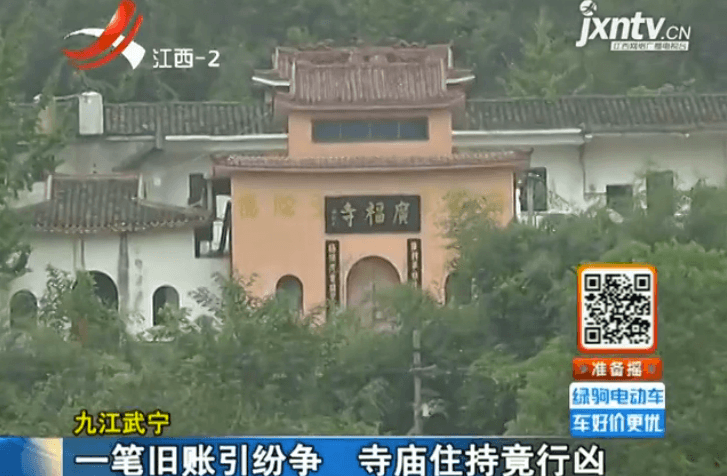There must have been some bad karma between Yu Shuimei, a lay female disciple of Buddhism in Jiangxi Province, and her Abbot, who went unnamed in media reports—he slashed her to death in his temple after she went asking about a debt.
The killing took place at the Guangfu Temple in a village at Wuning County of Jiujiang City, according to Jiangxi Television.
On the evening of Sept. 13, Ms. Yu, 59, accosted the abbot and only monk at the temple about a debt he owed her. She was next seen lying on the ground in a pool of her own blood, the abbot standing over her with a knife, according to her son-in-law, Li Daorong, who heard the screams. Blood marks and handprints were found on the ground around her body, indicating a struggle.
The abbot, who was not named, had reportedly owed Ms. Yu 7,000 yuan ($1,138)—an “old debt,” according to Li.
Li Daorong, the son-in-law, said he was waiting for Yu outside the monastery when he heard her cries. They had previously entered the temple together where she had broached the debt issue; Li then left. When he went back in, he saw the body.
The suspect was arrested by local police, who say they are investigating the matter.
The case has shocked many in China, highlighting growing concerns about social breakdown and moral collapse—in this case that a Buddhist monk, whose life is supposed to be dedicated to cultivating compassion and spiritual enlightenment, seems to be guilty of murder in cold blood. Buddhism strictly forbids the taking of any life.
“Being a monk nowadays in China is just a career. During work they seem to be good. After work they gamble, hire prostitutes, and even swindle and steal,” said Liyuanquanquan, an Internet user, on Sina Weibo, China’s version of Twitter.
Rumors of sex scandals involving Chinese who identify themselves as Buddhist monks have surfaced many times in recent years.
In 2011, Shi Yongxin, the abbot of Shaolin Temple in Henan province, was attacked in an online post, which claimed that he held at least $3 billion in deposits in overseas bank accounts, and owned villas in the United States and Germany. The allegations, which were said to have come from disciples at the temple but were not confirmed, said he maintained an affair with a celebrity and relations with a student at Peking University with whom he had a child. The temple denied the claims, but Shi canceled his appearances at several significant Buddhist activities in China during the following year.
Chinese job hunting websites also advertise positions for monks and nuns, like any regular form of employment. Salaries are specified, daily working hours are set at eight, and food and accommodation are provided. The temples benefit from this arrangement because they make money from the tourists, on whose behalf the monks light incense and perform rituals. Tourists also sometimes pay entrance fees to temples, and buy expensive and elaborate sticks of incense and other trinkets, calling on the Buddha to assist them in their worldly pursuits.




